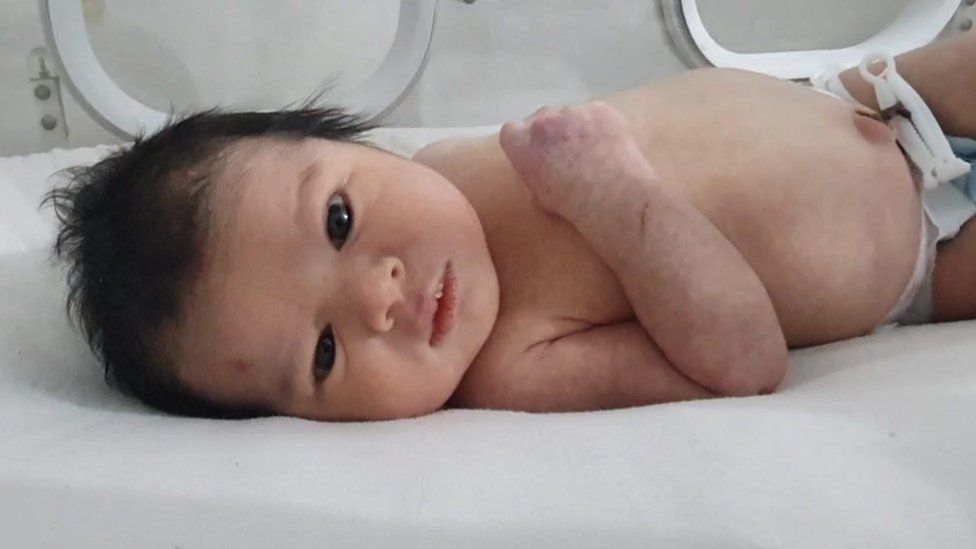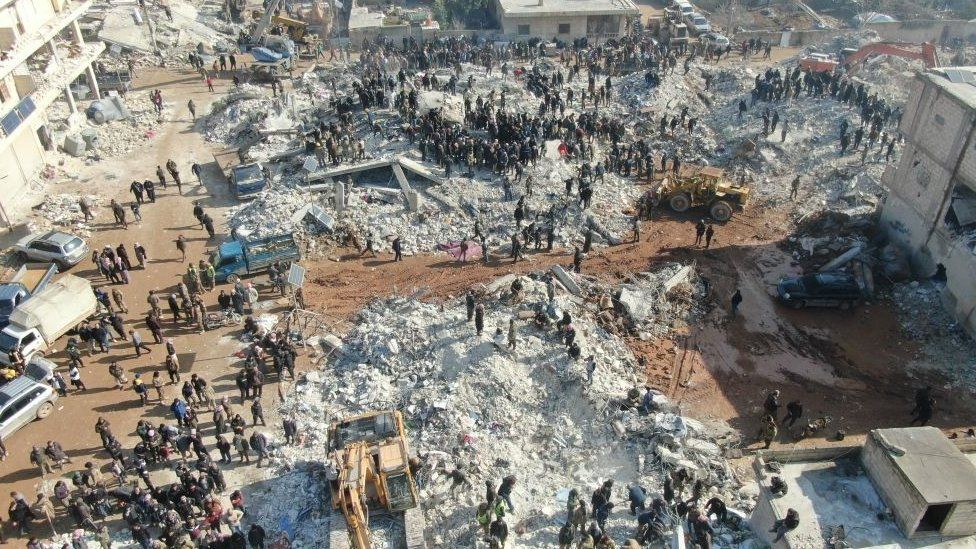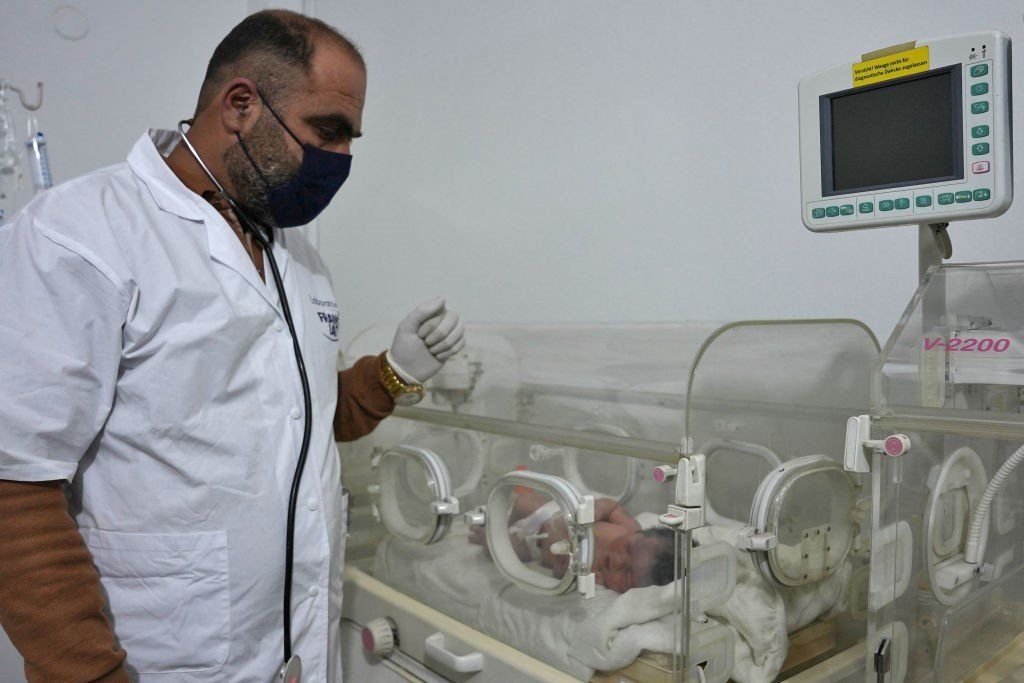Syrian Rescue and Survival

"[We have received dozens of calls from people all over the world wanting to adopt baby Aya].""I won't allow anyone to adopt her now. Until her distant family return, I'm treating her like one of my own."Hospital Manager, Khalid Attiah"The rescuers can end up being victims too because of how unstable the building is.""We just pulled three bodies out of this rubble and we think there is a family in there that is still alive - we will keep on working."Mohammed al-Kamel, White Helmets rescue group, Jindayris, Syria
 |
| Rescuers from the White Helmets organisation, who are all too familiar
with pulling people out of the rubble for over a decade during Syria's
civil war, have been helping in Jindayris.Getty Images |
A newborn child, umbilical cord still attached to her dead mother, was found alive by members of the Syrian rescue group White Helmets and taken to hospital for care. "She arrived on Monday in such a bad state, she had bumps, bruises, she
was cold and barely breathing", the paediatrician
looking after her, Hani Marouf explained. In other circumstances, baby Aya would have four siblings to play with and grow up with. All four perished along with their mother and father. When the earthquake struck Aya's mother went into labour and gave birth; she may never even have seen her baby daughter before dying.
A lot of publicity surrounded this child; the video of her rescue was posted to social media resulting in a response from people all over the world, offering help, many wanting to adopt the child whose name in Arabic means "a sign from God". One of the nurses at the hospital treating the baby aroused suspicion when he was seen photographing the tiny girl.The hospital manager whose wife was breastfeeding Aya thought the male nurse might be planning to abduct the baby, so he fired the nurse.
Before long the nurse returned along with two thugs with guns who set about beating the hospital director. The gunmen informed local police officers they intended to punish the hospital director for firing their friend, with no interest in kidnapping the baby. False claims of being relatives to the baby have been made by people showing up at the hospital, indicating a need for a police guard. In fact, a close relative, her great-uncle has stated that the baby's paternal aunt plans to raise the baby together with her own she recently gave birth to.
 |
| Getty Images |
Ten hours after the February 6 quake struck, rescue workers in Jindera in Syria's north discovered the baby while digging through the rubble of a five-storey apartment building where her parents lived. She has been cared for at the hospital in Afrin ever since. Dozens of housing units in the town of Jinderis were destroyed. Her father, originally from a village in eastern Deir el Zour province, left it when the village was captured by the Islamic State group.
Many of the towns and cities where millions lived were reduced to fragments of concrete and twisted metal following the initial quake, another almost as strong, and a series of tremors striking southeastern Turkey and northern Syria. Over a week following the disaster hundreds of thousands have been left homeless and struggling to find the basics required to sustain life; shelter, warmth, food, water, medical attention. The brutal winter weather itself represents a danger to sustained life for the survivors.
Moving aid into the large area impacted by the tremblors in Syria is hampered by the difficulty in access to crossings into the area as a result of the 12-year civil war where millions of Syrian Sunnis fled to escape the assaults by the Syrian regime's military. Aid agencies have found it difficult to deliver life-saving winter clothing, food and potable water. The Turkish military is still bombing Kurds nearby the disaster zone in Syria. There are warring factions nearby, including Islamic State.
People desperate for aid in Syria in difficult-to-reach areas still have received nothing. In Turkey survivors have been put up temporarily in rail cars. In northwest Syria, 190 families sleep on the floor of a basketball court in Afrin, lying on mats used for training. Children are wrapped in blankets and sleep on the court floor, some of them becoming ill from conditions of privation. Local officials are awaiting the delivery of tents.
The United Nations reached an agreement with Damascus to deliver aid through two more border crossings from Turkey to rebel-held areas of northwest Syria. A $397 million appeal for "desperately needed, life-saving relief for nearly 5 million Syrians" for three months has been launched by the United Nations.
 |
People walk past collapsed buildings on Thursday in the town of Jinderis, in Syria's Aleppo province, days after a massive earthquake devastated the region. Ghaith Alsayed/AP |
Labels: Desperation, February 6 Earthquake, Survivors, Syria, Turkey
0 Comments:
Post a Comment
<< Home